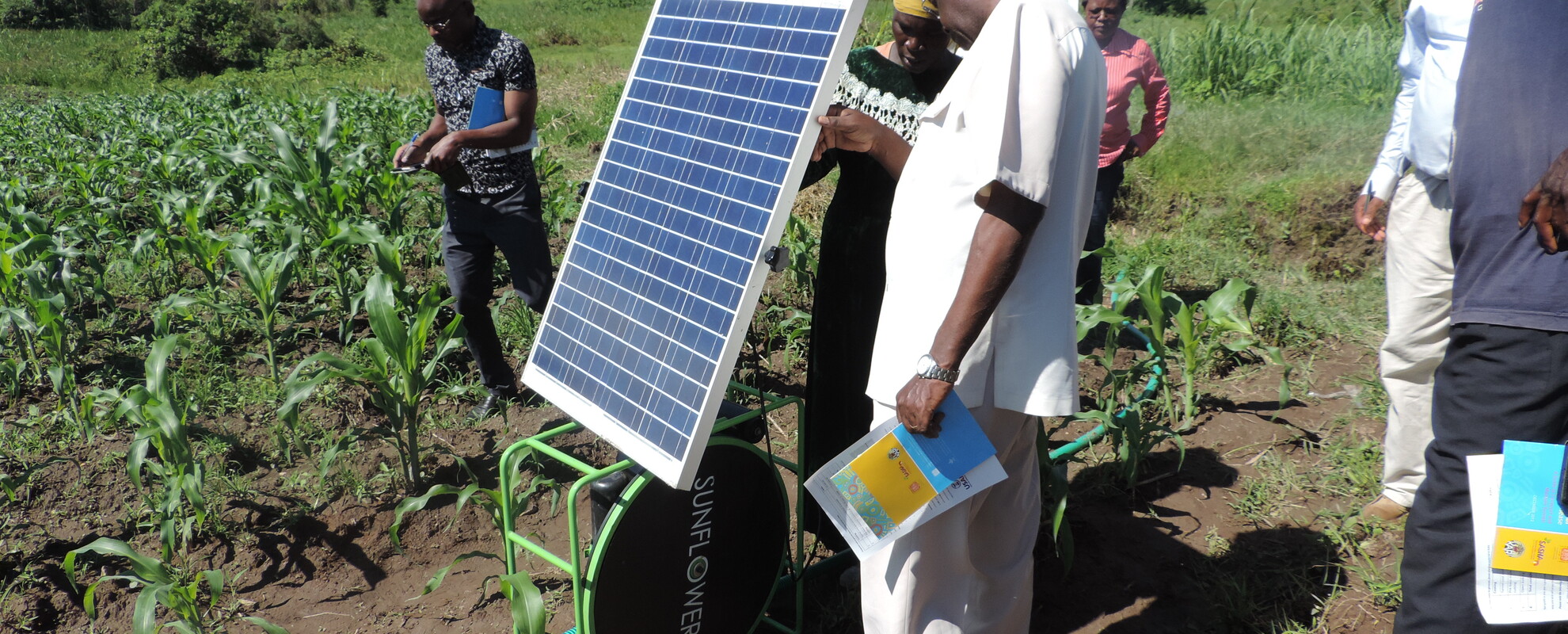

Powering Sustainable Food Systems
Today’s food systems contribute to environmental degradation and greenhouse gas emissions. It is thus urgent to develop and implement approaches that prioritize access to clean and efficient energy sources to power food systems, sustainable improvements to living conditions and livelihoods, and the transformation of food systems in Africa. In the agri-food sector, energy is needed for activities such as mechanization, water pumps, irrigation, fertilizer production, transport, and food processing and storage. African countries have vast solar and wind potential that still remains largely untapped. Off-grid renewable energy solutions are particularly important and suitable for improving access to energy in rural areas and smallholder farming. These technologies are deployable in a decentralized and modular manner, can be implemented faster than centralized systems, and are closer to the demand, thus reducing transmission and distribution losses and boosting local economies. Affordable, sustainable energy sources such as solar power (minigrids, solar home systems, etc.) also reduce pressure on forests and emissions, helping countries to meet their NDC targets. During this session, specialists will share the latest energy technologies and solutions to power and transform food systems across the continent and beyond.




